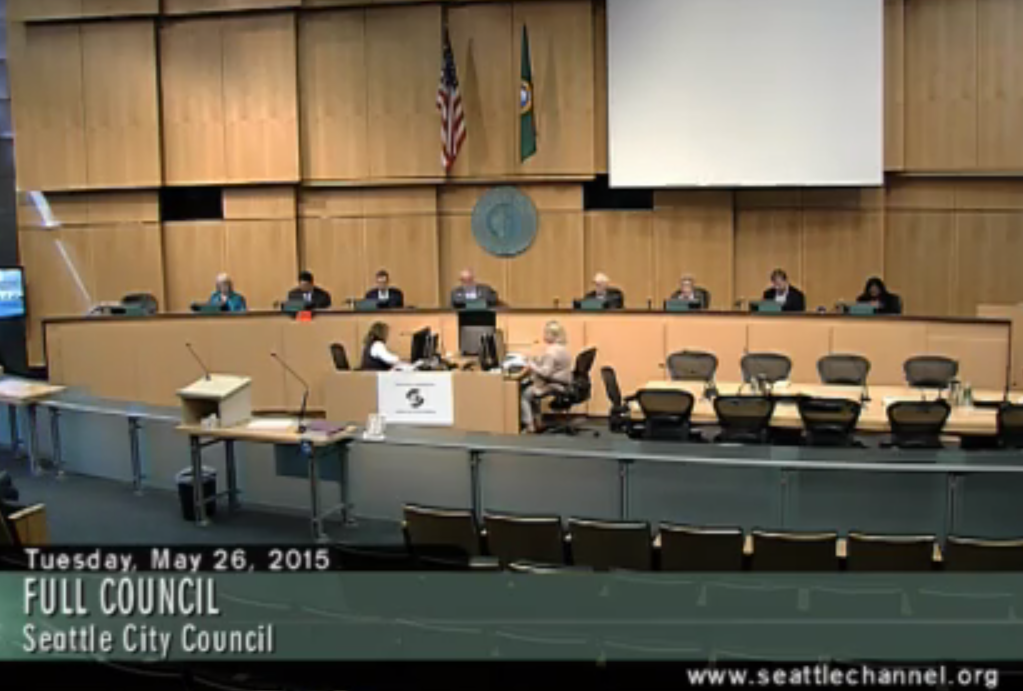
Council President Tim Burgess announced new legislation last week to preserve affordable multifamily housing units and give renters additional protections from the invocation of just cause evictions by landlords. Burgess submitted the two pieces of legislation to the Seattle City Council on Tuesday for further consideration by the Committee on Housing Affordability, Human Services, and Economic Resiliency (HAHSER). In addition to the backing of Burgess, the legislation has received co-sponsorship by Councilmember John Okamoto, Chair of the HAHSER Committee.
Proposed Affordable Multifamily Rental Housing Rules
Council Bill 118404 creates a new section of code designated as Chapter 22.906. This code provision would require some owners of multifamily rental housing buildings to provide notice to public agencies when there is an intent to sell the building. Specifically, property owners would have to notify the City of Seattle Office of Housing and the Seattle Housing Authority. Only buildings with five or more rental units and at least one unit being rented by a household at or below 80 percent of the area median income would be subject to the code provisions.
The proposed language notes that the notice must be submitted to the agencies in writing, which should include property details and basic contact information for the owner. Owners would have to mail the notices no later than fifteen days prior to a property being listed with a real estate service or advertised online or print. The code doesn’t compel a property owner to sell to the agencies, but it does give them an opportunity to review the proposed sale and determine if the property is a candidate for acquisition.
Proposed Tenant Protection Rules
Meanwhile, Council Bill 118403 revises the language of just cause evictions by landlords. Burgess’s proposed revision would amend language to subsections 1.e. and 1.f. of Section 22.206.160.C, Just Cause Eviction. All other changes to the Section of code are merely housekeeping matters, not material revisions.
Subsection 1.e. governs just cause evictions in instances where a landlord or their immediate family member intends to occupy the unit. Landlords must give written notice if there are no “substantially equivalent” units readily available in the building. The written notice requirement for eviction under the provision is currently set at 20 days.
Proposed language by Burgess would increase the written notice period at 90 days. Landlords would have an out if they can substantiate a personal hardship placed on the landlord or their immediate family member. The written notice period in such instances could be reduced to 20 days, but the City would have to determine that the personal hardship claim is legitimate. Some may wonder what constitutes a personal hardship. The code section describe a few instances of personal hardship, but does not limit the definition exclusively to those.
Subsection 1.f. governs just cause evictions when a property owner of a single-family dwelling unit intends to sell the dwelling. Current code requires 60-day written notification to the tenant, which must coincide with the end of a rental agreement or the last day of a monthly period for a month-to-month agreement. And, the owner must list the single-family residence at reasonable price for sale within 30 days of the tenant vacating the unit. The Burgess proposal would see the written notice period increase to 90 days. However, it could be reduced to 60 days if the 90-day notice period would result in a personal hardship to the owner. Again, the the City would have to determine that the personal hardship claim is legitimate. (If you’re curious about the full range of Just Cause Eviction clauses regulated by the City of Seattle, take a whirl of SMC 22.206.160.C.)
Many housing affordability advocates and renters are likely to see this as progress by Council, but others are calling for much broader efforts to preserve affordable housing units and give greater power to tenants. Meanwhile, some counter that while the affordable rental housing preservation provisions may indeed preserve affordable units, it will have a larger negative impact by reducing highly developable properties for greater density and lead to long-term affordability issues. Whatever the case, it’s not yet clear how many people could potentially benefit from the legislation on an annual basis (the data isn’t available at this time).
Stephen is a professional urban planner in Puget Sound with a passion for sustainable, livable, and diverse cities. He is especially interested in how policies, regulations, and programs can promote positive outcomes for communities. With stints in great cities like Bellingham and Cork, Stephen currently lives in Seattle. He primarily covers land use and transportation issues and has been with The Urbanist since 2014.



